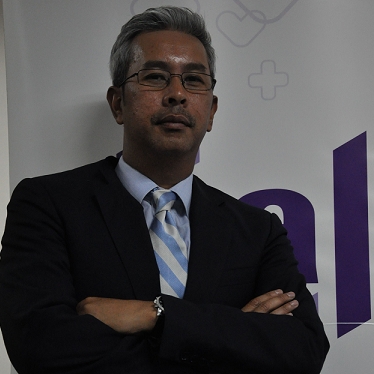The journey Skali Group (‘Skali’) underwent to be what it is today, was long as well as ‘varied’. From a search engine operator in Asia to becoming a data centre hoster, content aggregator, CMS solutioneer and more, their experiences in these various areas stands them in good stead as they ramp up toward providing a private cloud solution by August 2013.
Having already launched a public cloud solution last year, Skali’s Group CEO and Co-founder Tengku Farith Rithaudeen had shared, “Our dream is to make IT and solutions more affordable.”
 |
| Tengku Farith Rithaudeen |
This statement is borne of observations that a lot of companies find IT difficult because it changes all the time.
He also opined, “Thirty-percent of any IT deployment cost is hardware. The problem is having to buy it all at once which costs anything from RM50,000 to RM20 million. That is a big sum of money.”
With over 2000 customers, even from countries like Vietnam, U.S. and Belgium, revenue from their public cloud solution or Skali Cloud, is growing 30% every month since launch.
Farith expects it to surpass revenue from their data centre services soon.
Learnings from experiences
Another byproduct from their CMS or content management solution roots, is that currently over half of top 10 Government websites, ranked by MDec, are based upon Skali’s offerings. From Skali’s bygone days of being an Internet portal, the portal engine or CMS that ran it all has been productised.
Skali’s CMS is built upon Liferay, an open-source enterprise content management framework. “We are now, the largest open source Web platform implementor in the region,” said Farith.
Self-service IT
Besides a yet-unnamed-but-promised-to-be-sexy-sounding private cloud solution with bursty capability, Skali would also launch a Platform-as-a-service (PaaS) solution, this August.
This PaaS service provides tools and environment that allows customers, vendors and partners to develop their apps by themselves.
“Simple apps like workforce management could cost RM40,000 to RM50,000 when outsourced to be developed. Businesses can now develop it themselves at subscription rates (to PaaS) of RM400 to RM500 per month.”
Farith explained, “The type of apps suitable for this is a bit more niche. We have ready customers for this so it’s focused and a lot of them would be built together with customers, piloted together… we work closely for requirements elicitation so it reduces time for deployment, and increases acceptance of the applications.”
Growth
“We are moving towards that,” Farith once more emphasised focused and close working relationships with customers, also adding that the business plan is to look for growth by acquisition rather than organically.
“(Going into other countries like Indonesia, Thailand, Brunei, Saudi Arabia), we work with partners first and invest in joint ventures.”
For example, in Jakarta, and soon Thailand, they work with local Internet Service Providers (ISPs). “Skali brings the cloud platform technology and our ISP partners front end and distribute it,” said Farith.








